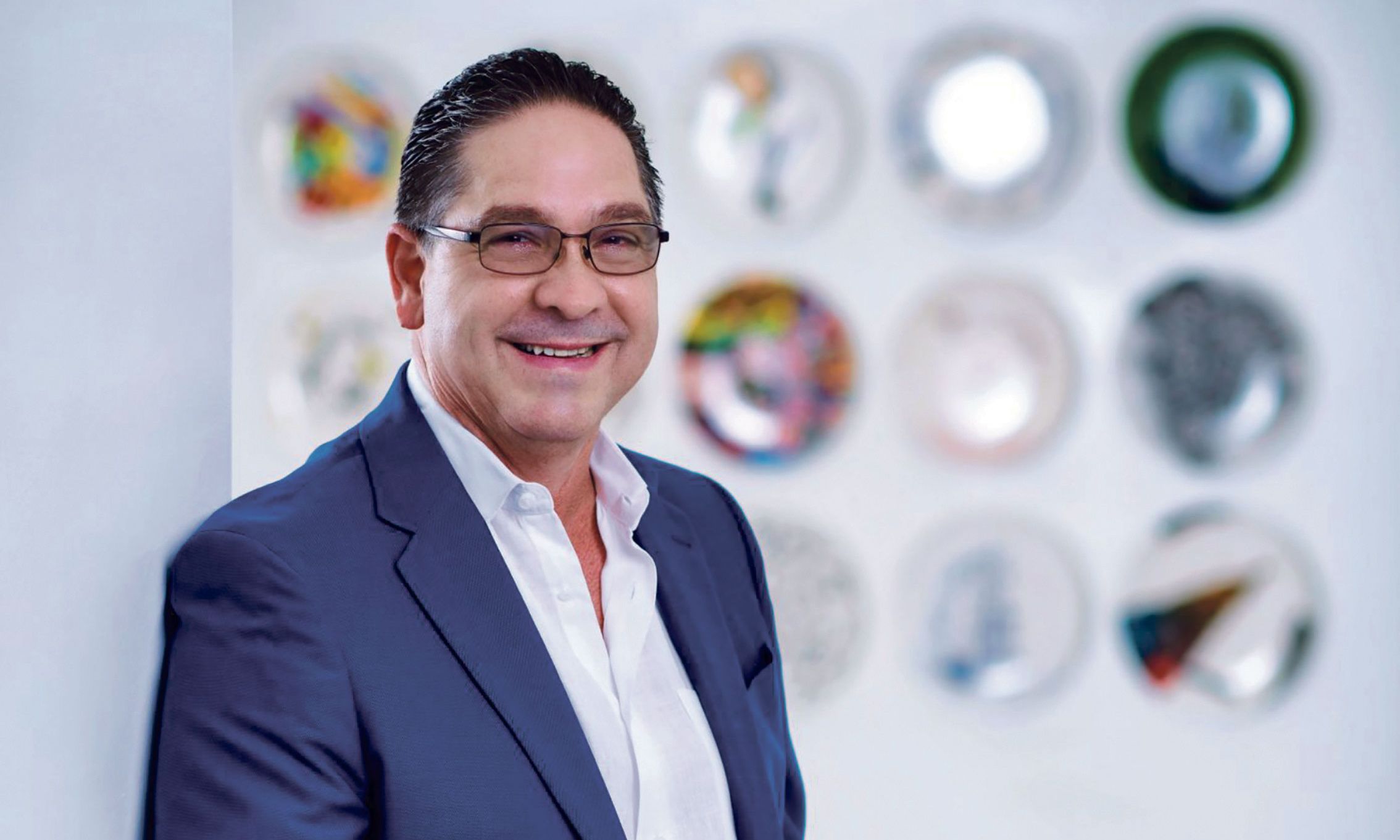Photo: Felipe Cuevas, Courtesy of the Kendall Art Cultural Center, The Rodríguez Collection
The Cuban-born businessman Leonardo Rodríguez has been collecting art for nearly 30 years. He first collected antiquities, then focused on Modern and contemporary Cuban art, acquiring pieces by artists such as Servando Cabrera and Yoan Capote. When Rodríguez emigrated to the US in the late 1990s, he was only able to bring 12 works with him. In Miami, he founded an electrical company and began rebuilding his collection, which now includes more than 200 pieces.
In 2016, Rodríguez founded the Kendall Art Center, a private museum that exhibits his collection and aims to support the history and future of Cuban art. Rodríguez was also an artist earlier in his life, primarily doing metalwork while he worked in a jewellery atelier. His interest in craft led him to launch the Fine Arts Ceramic Center earlier this year, a workshop next to the museum where the “understudied art and practice of ceramics has been reinvigorated”, he says. Rodríguez describes his collecting habits as being determined by the interplay between the piece, the artist and himself. “If a work says nothing, if it communicates nothing, then it doesn’t interest me, no matter how ‘pretty’ or ‘good’ it is,” he says.
The Art Newspaper: What was the first work you bought?
Leonardo Rodríguez:I started collecting when I was 18 years old. I was still living in Cuba at the time. My first pieces were works by René Portocarrero, Cundo Bermúdez and Mariano Rodríguez.
What was your most recent buy?
I recently bought a large ceramic work called Humanity’s Gambit [2021] by the artist Ivonne Ferrer. It’s a brilliant and unique take on the game of chess, completely made out of ceramic. I’m crazy about the work.
If your house was on fire, which work would you save?
That’s a tough question. There are a few. I would say a work by Luis Cruz Azaceta and José Bedia.
If money were no object, what would be your dream purchase?
It would be Botticelli’s Primavera [around 1480] now in the Uffizi [in Florence]. Just the section showing the three graces is enough for me. Botticelli was ahead of his time.
What is the most surprising place you have displayed a work?
Definitely at the Smithsonian’s National Museum of American History, where we ended up donating the piece as a gift to the museum. It was a painting of the Cuban baseball player José D. Abreu by the artist Reynerio Tamayo.
Which artists, dead or alive, would you invite to your dream dinner party?
I would definitely invite Wifredo Lam, Amelia Peláez and Mario Carreño. With Wifredo, I just studied him a lot. He has a masterful hand, perfect strokes. He’s the best, but he also had a bad attitude and was a complete bastard. Amelia and Carreño, both came from money, Amelia especially. She had her own studio behind her family’s estate in Cuba. At that point you would have so many egos and different backgrounds at the table. I would love to be privy to that conversation.
What’s the best collecting advice you’ve been given?
The best collecting advice I have received has been from the artist Aldo Menéndez, when he told me, “You can’t just collect for the sake of collecting. And, “Please, limpia la coleccíon (clean the collection), which basically translates to ‘take out the trash!’”.
What have you missed most during lockdown?
El calor humano, or human presence, at the Kendall Art Center. And
being able to work together without restrictions.
Have you bought an NFT?
No, and I don’t plan to. Personally speaking, I don’t believe in that sort of thing. I believe in what I can see and touch. I need to be able to digest a work of art that is sitting in front of me, to be able to connect with it and allow it to speak to me. You can’t do that with an NFT. It undermines everything that I am currently doing.

